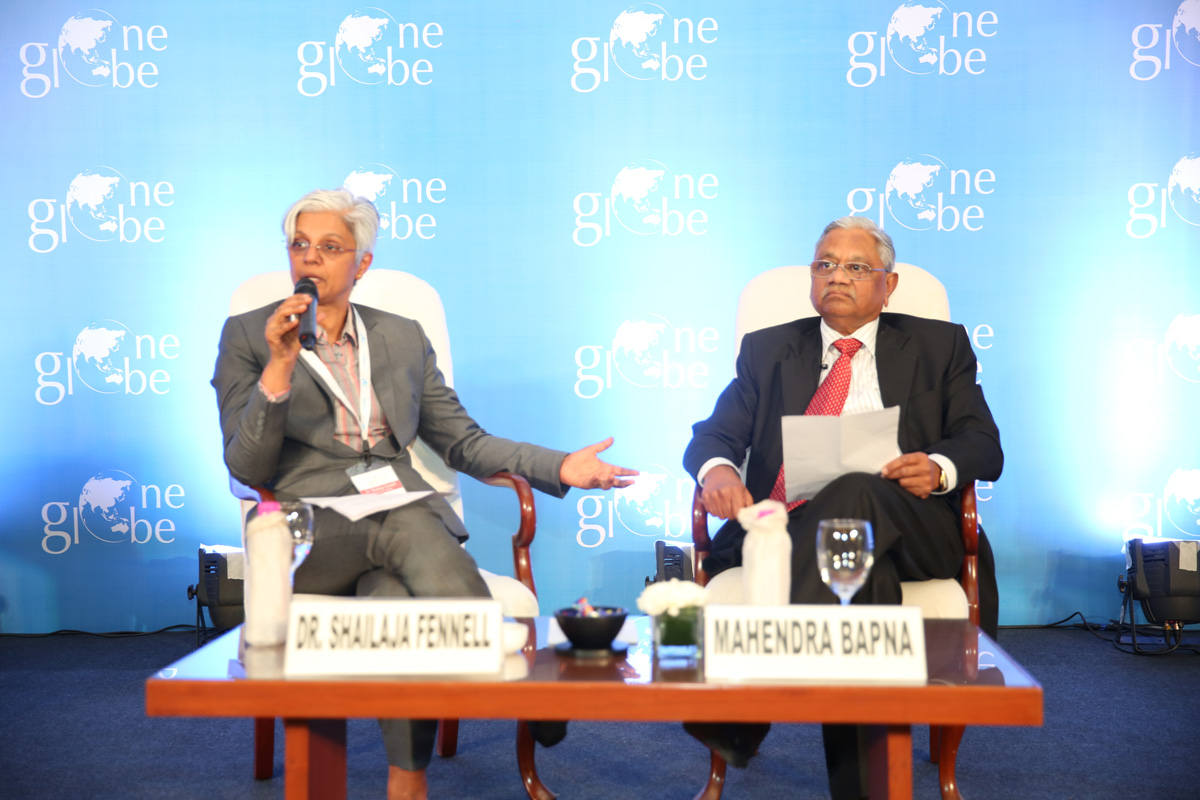Rethink skilling to create jobs for future generations
Posted by Admin on July 24, 2018By: Skendha Singh

At the One Globe Forum 2018, Dr. Shailaja Fennell, Director of Research, Cambridge Central Asia Forum, Lecturer in Development Studies and Fellow of Jesus College at University of Cambridge, began the ‘Fireside Chat - Skilling India’s Youth for the 21st Century’, by stating that as far as skilling was concerned introspection was key. The existing ideas and methods had proved less than sufficient.
With fast-paced technological advances, the future is unpredictable in terms of job roles and numbers. According to the ‘Emerging Technologies’ Impact on Society and Work in 2030’ report published by Dell Technologies and the Institute for the Future, 85% of the jobs that will exist in 2030 do not exist at the moment. The recent ‘Future of Jobs in India’ study commissioned jointly by FICCI and NASSCOM with Ernst & Young, estimates that by 2022, 9% of India’s 600 million estimated workforce will be deployed in jobs that do not exist today, while 37% will be in jobs that have radically changed skillsets. Industries such as IT, Banking and Automotives will be highly impacted. Skills can therefore not be delivered with a view to current employment alone or be purely vocational. Dr. Fennell said, “85% of the jobs have not been created. It doesn’t mean there is no talent in the system. It just means those talents have not been recognized. . . We can’t wait for skilling to happen. It’s about creating spaces in which you have disruptive technologies that make a difference.”
The ‘Emerging Technologies’ report also goes on to say that individual skills such as creativity, entrepreneurial mindset, nuanced understanding, automation literacy, and learning agility will be highly necessary, and enable deeper human-machine partnerships.
These new skills can only be delivered through new methods. Mr. Mahendra Bapna, Visiting Faculty, Harvard University; Advisor (Industry-Academia Interface), IIT Jodhpur, agreed. He said, “The world requires a third level of education. You have school where you have K-12, and you have universities to give PhDs, but the world has different problems now. [The] problems that [existed] when Cambridge started, or other universities started, today are different – peace, health, education, poverty, etc.” As job roles will evolve to solve different problems, skilling will evolve to fulfil these job roles.
He continued that India’s Vision 75 was to train 500 million people in the country. Unfortunately, not much has been done so far. Between 2015-16, only 5.5 million people were enrolled in skilling courses and 2.4 million had been placed in jobs as skilled workers. In terms of infrastructure, the number of Industrial Training Institutes in India as on April 2016, was 13105. As per government data, the seating capacity of ITIs in India as of April 2016 was 1,865,620. Mr. Bapna was skeptical of the government meetings its aims of training 500 million in the next 4 years – “When will they train 500 million people? Maybe [they] will take 100 years, and 100000 institutions to be opened immediately – not possible.”
India must therefore rethink its skilling infrastructure and curriculum. There are successful skilling programs and practices in India which can serve as examples: Akshay Patra, Pratham, Vivekananda Institute for Leadership Development, and others.
Skilling is the key to India’s growth. According to the 2011 census, 231 million Indians are between the ages of 15 and 24, which means there should be no labour shortages for the 24 major sectors that require 347 million skilled workers by 2022. There should also be no shortage of jobs.
However, the country cannot rely on a piecemeal approach. If the scale of the challenge is staggering, the solution must also be sought on a macro level. Mr. Bapna said, “When a country decides at the highest level it is very important to create a masterplan. We cannot take one small thing here and one small thing there and say you do this and this.” He said if India wanted to build 500 smart cities and train 500 million people, it needed to have a composite masterplan which would work on its economic, social and political systems.
Of these, the economy was priority. The panelists agreed that India needed a clear plan going forward in the next 20 years or 30 years. Without economic planning, there will be a dearth of jobs. Skilling people for jobs which do not become available will only create volatile situations.
Dr. Fennell concluded the session by underlining the importance of thinking long-term when it comes to planning: “We must emphasize the inter-generational aspect of skilling. Jobs need to be created for our children, and their children. Unless this is understood and emphasized, we are not going to get sustainable, inclusive and therefore smart societies.”








